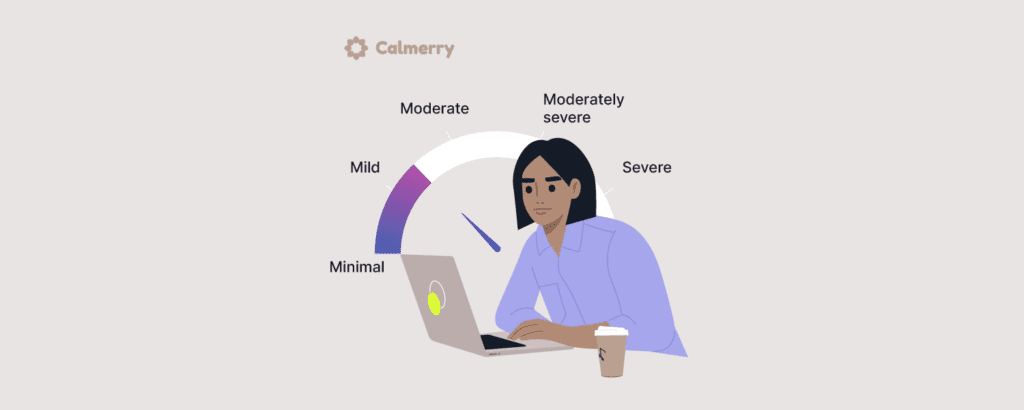35 Mental Health Terms to Better Understand Your Well-Being

In this article
Although talking about mental health isn’t easy, it’s essential because it’s an important part of decreasing the stigma associated with mental illness. Uncomfortable but necessary conversations about mental health empower people to seek professional support and get the help they need.
But when we are talking about mental health in different contexts, we often use words loosely and interchangeably, especially when it comes to terminology.
The language of mental health can be confusing, so we’ve put together this list of mental health terms you should know. Hopefully, it can help you better understand what they mean and use the right words to describe your experience.
Common mental health terms
Mental health
The state of psychological well-being in which a person realizes their own potential, can cope with the normal stresses of life, can work productively and fruitfully, and can contribute to their community. Mental health is about wellness rather than illness. Having good mental health helps you lead a relatively happy and healthy life and demonstrate resilience when facing adversities.
Well-being
The state of maintaining a balance of physical, mental, and emotional health. Well-being is strongly linked to happiness and life satisfaction and could be described as how you feel about yourself and your life. In simple terms, well-being can be described as judging life positively and feeling good.
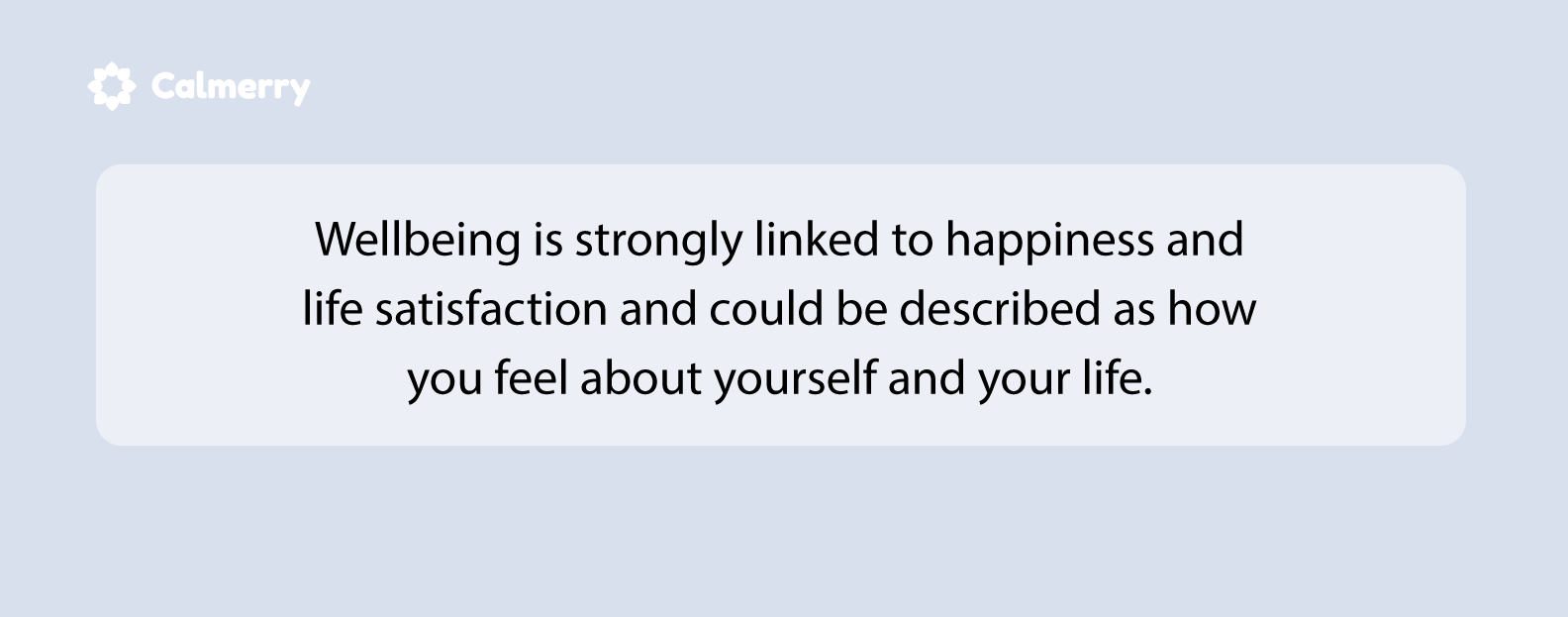
Mental distress
The unpleasant feelings or emotions that you may have when you’re faced with stressors. When we experience daily mental distress, we can feel sad, disappointed, angry, worried, unmotivated, or overwhelmed at the moment. These experiences of stress may occur at times in our lives; they may be common and reversible, and they are usually temporary. We may not need any intervention; resilience can help us adapt by ourselves by using positive coping strategies and with support from our family or friends.
Mental health problems
Difficult experiences that make it harder for us to get on with our lives. They include the strong painful emotions and negative thoughts that may arise when someone is faced with a much larger stressor than usual. These emotions are also accompanied by substantial cognitive, physical, and behavioral difficulties.
Mental health problems occur as part of normal life, for example, in response to the death of a loved one, and are not mental illnesses. People experiencing mental health problems may need extra help, such as counseling. Long-term psychotherapy is usually not necessary.
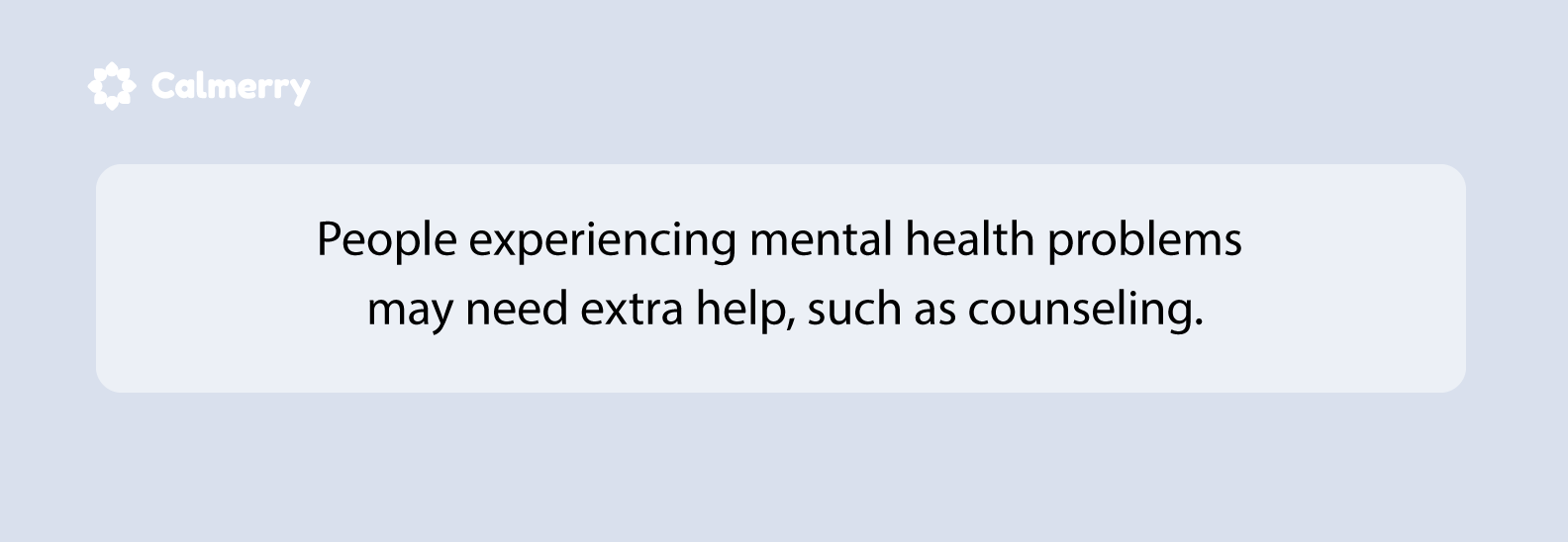
Mental illness
Mental illnesses, also referred to as mental disorders, are behavioral or mental patterns that cause significant distress or impairment of personal functioning. They are diagnosed by a trained health professional, such as a doctor, clinical psychologist, or psychiatrist, using internationally established diagnostic criteria. The Diagnostic and Statistical Manual of Mental Disorders, Fifth Edition (DSM-5) lists almost 300 different mental health disorders and organizes them into broader categories.
Mental disorders are viewed as irregularities or interruptions of the normal functioning of the mind or body. They may be caused by different factors, for example, genetic predispositions and family history of other diseases, traumatic life experiences, etc. But mental disorders can’t be detected by laboratory tests, and their symptoms vary widely and overlap considerably. For instance, depression and anxiety share the majority of symptoms and also tend to co-occur in what is called comorbidity.
Mental illnesses disrupt a person’s life, adversely impacting their emotional, physical, and mental health and well-being. In most cases, symptoms of mental disorders can be effectively managed with a combination of medications and psychotherapy.
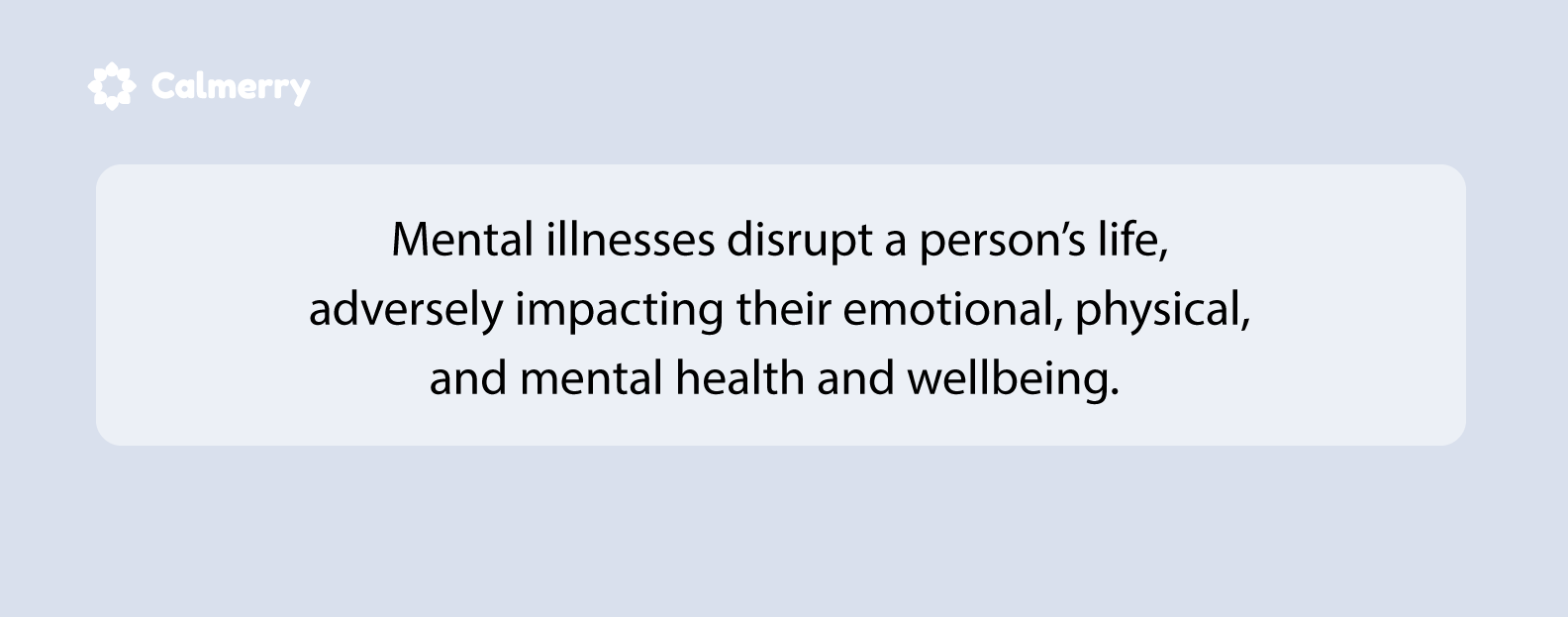
Symptoms
Evidence or a sign of a health condition that the person with the condition notices themselves. Symptoms of mental illness can vary, depending on the disorder, circumstances, and other factors, and can affect emotions, thoughts, and behaviors. Examples of mental illness symptoms might be low mood, excessive fears or worries, confused thinking, withdrawal from social activities, etc.
Comorbidity
Also known as dual diagnosis, comorbidity describes the presence of two disorders in a single person, for example, when someone has been diagnosed with a substance use disorder and depression. Two disorders or illnesses may occur in the same person either at the same time (co-occurring comorbid conditions) or with a time difference between the initial occurrence of one and the initial occurrence of the other (sequentially comorbid conditions).
Evidence-based (treatment/practice)
Treatments that are supported by clinical evidence from systematic relevant research that has been conducted using sound methodology. Evidence-based practices conscientiously and explicitly integrate individual clinical expertise with the best available external clinical research evidence in making decisions about the care of individual patients.
Psychotherapy
A general term that is used to describe the process of treating mental illnesses and mental distress by talking with a psychiatrist, psychologist, or other mental health provider. Psychotherapy or talk therapy can help eliminate or control troubling symptoms so a person can function better. It helps you learn how to respond to challenging situations with healthy coping skills.
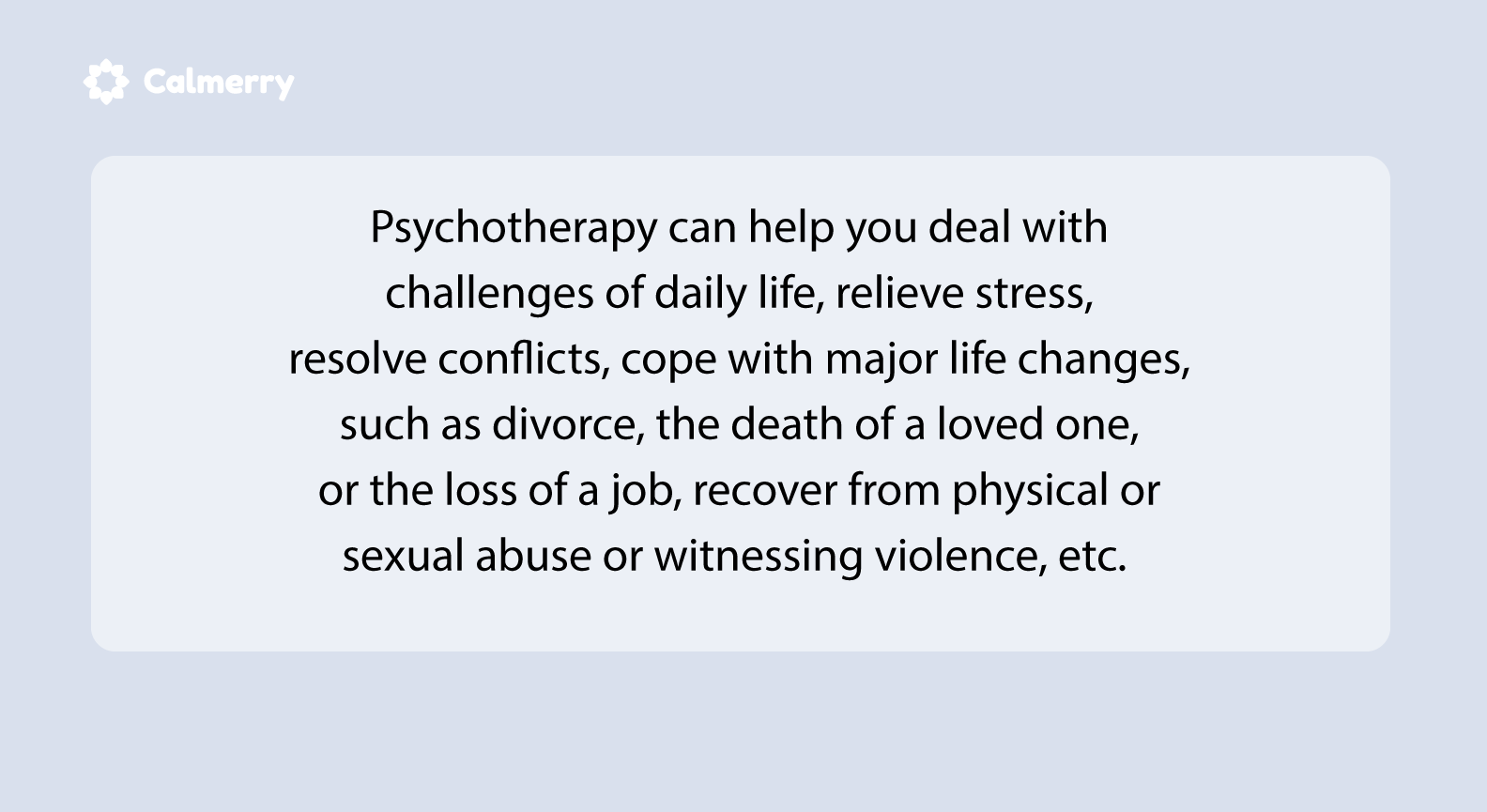
Psychotherapy can be helpful in treating most mental health concerns, including anxiety, OCD, panic disorder, phobias, PTSD, depression, bipolar disorder, substance use disorder, anorexia, bulimia, and borderline personality disorder. It may also help you deal with challenges of daily life, relieve stress, resolve conflicts, cope with major life changes, such as divorce, the death of a loved one, or the loss of a job, recover from physical or sexual abuse or witnessing violence, etc.
There are different types of psychotherapy, for example, CBT, DBT, ACT, humanistic therapy, etc. And some types may work better with certain issues. Psychotherapy may be used in combination with medication and other treatments.
Coping skills
Strategies or tactics that can help you deal with stressful situations and lessen unpleasant emotions, thoughts, or behaviors. Coping mechanisms can help you adjust to stressful events while helping you maintain your emotional well-being.
Healthy coping skills can be either problem-focused or emotion-focused:
- Problem-focused coping strategies are practical ways to reduce or solve the issue that is causing you stress.
- Emotion-focused coping skills can help you manage any feelings of distress that result from the problem.
Resilience
According to APA, resilience is the process and outcome of successfully adapting to difficult or challenging life experiences, especially through mental, emotional, and behavioral flexibility and adjustment to external and internal demands. Resilient people have the ability to withstand the adversity, bounce back quickly in the times of stress, continue moving toward their goals, and grow, often becoming stronger than they were before.
Psychological research demonstrates that resilience can be learned and practiced.

Psychoeducation
An evidence-based therapeutic intervention for patients and their loved ones that provides information and support to help them better understand and cope with illness. It involves learning about mental illness and ways to communicate, solve problems, and cope. Psychoeducation is considered to be an essential aspect of all therapy programs.
Emotional intelligence
Refers to the ability to recognize, understand, and manage one’s own emotions and recognize, understand, and influence the emotions of others. Emotional intelligence includes such skills as self-awareness, self-regulation, motivation, empathy, and social skills.
Empathy
The ability to identify, understand, and share other people’s emotions and thoughts, see things from their point of view, and be compassionate toward them. Empathy enables prosocial and helping behaviors that come from within rather than being forced, allows people to build social connections and cooperate with others, and make moral decisions.
Terms related to mental health concerns
Depression
A term is used to describe a state of low mood or a mental disorder (also called major depressive disorder or clinical depression). Clinical depression is a common serious mood disorder that causes severe symptoms, such as sadness and feelings of worthlessness or excessive guilt, lack of interest or pleasure in daily activities.
The symptoms affect how you feel, think, and handle daily activities, such as eating, sleeping, studying, or working. A person can be diagnosed with depression if the symptoms are present for at least two weeks.
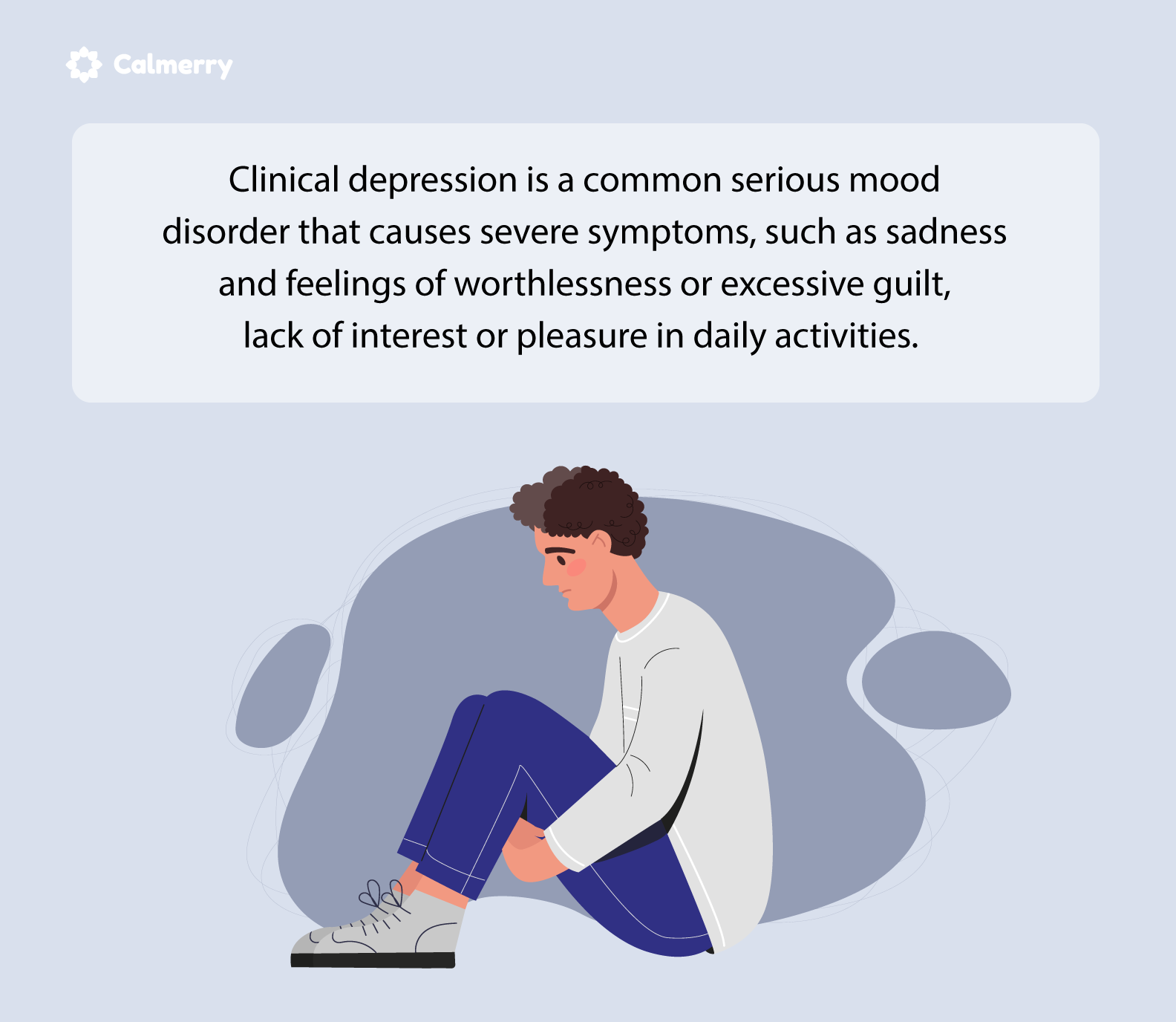
Bipolar disorder
A mental disorder that causes unusual shifts in mood, energy, activity levels, concentration, and the ability to carry out daily tasks. It’s formerly called manic depression. There are three basic types of bipolar disorder, and all of them involve clear changes in mood that range from periods of extremely “up,” elated, and energized behavior (known as manic episodes) to very sad, “down,” or hopeless periods (known as depressive episodes). Less severe manic periods are known as hypomanic episodes.
Anxiety
It’s a human body’s natural response to stress, and everyone experiences it. It’s a group of sensations that are generally unpleasant and mainly arise from being consciously worried about the future, or afraid of an actual situation. Anxiety includes a variety of physical sensations that are linked with thoughts that make a person feel apprehensive or fearful about what’s to come. It’s a signal that we need to adapt to life’s challenges by learning how to cope. If anxiety is persistent or out of proportion to the situation, it can be a symptom of poor mental health.

Anxiety disorders
A group of common mental disorders that share a variety of signs and symptoms that frequently appear as physical problems, such as muscle tension, dry mouth, stomach pain, back pain, headaches, and other unexplained aches and pains. The key feature is anxiety that occurs consistently over a period of time and for no apparent reason. It’s often combined with unrealistic fears of future threats.
There are several types of anxiety disorders, including generalized anxiety disorder, panic disorder, social anxiety disorder, and various phobia-related disorders. Anxiety disorders are among the most common and most effectively treatable mental health disorders.
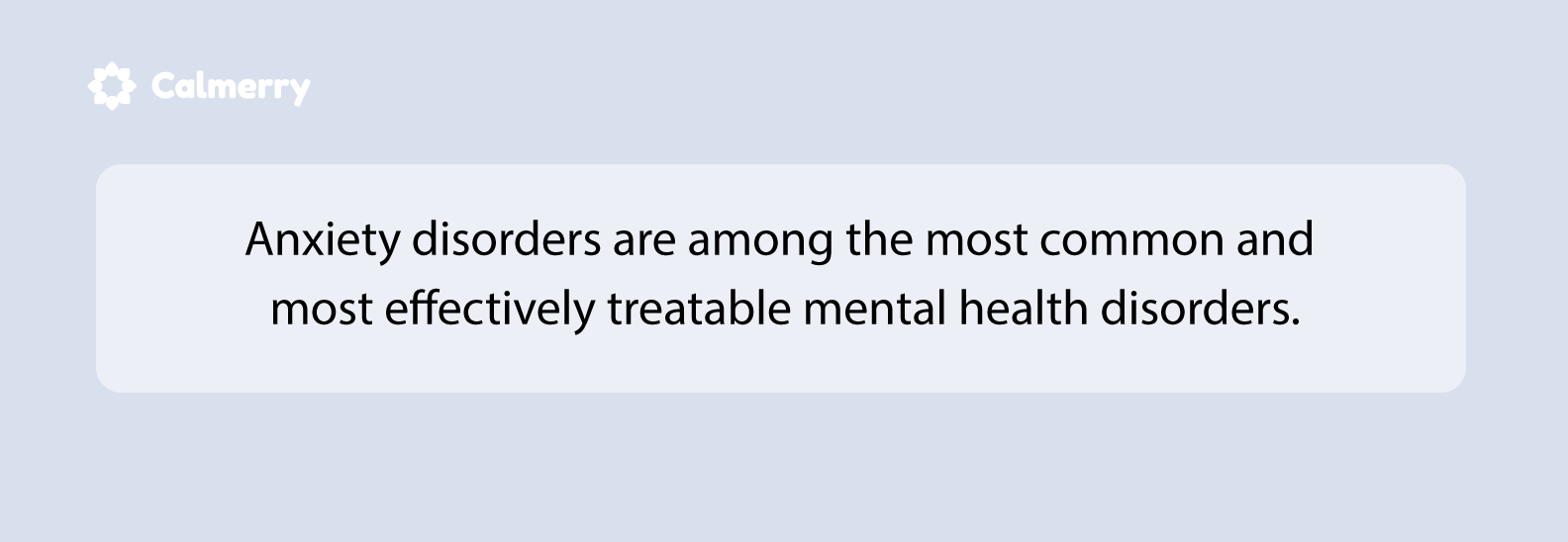
Panic attack
A sudden experience of intense fear or psychological and physical discomfort that develops for no apparent reason and that includes physical symptoms such as dizziness, trembling, sweating, difficulty breathing, or increased heart rate. Occasional panic attacks are normal. If they become persistent and severe, the person can develop a panic disorder.
Panic disorder
A person with panic disorder has panic attacks, expects and fears the attacks, and avoids going to places where escape may be difficult if a panic attack happens. Sometimes people with panic disorder can develop agoraphobia (a type of anxiety disorder in which a person fears and avoids places or situations that might cause them to panic and make them feel trapped, helpless, or embarrassed). Panic disorder can be effectively treated with psychotherapy and medications.
Phobias
Uncontrollable, irrational fears that lead people to altogether avoid specific things or situations that trigger intense anxiety. Such fears are out of proportion to the actual threats or dangers the situations pose and can interfere with work, school, and personal relationships. Phobias are diagnosable mental disorders.
Post-traumatic stress disorder (PTSD)
A disorder that develops in some people who have experienced a shocking, scary, dangerous, or life-threatening event that is outside the range of usual human experience. People who develop PTSD may feel stressed or frightened, even when they are not in danger. They will have flashback memories of or nightmares about the event and will avoid things that remind them of it.
PTSD can interfere with a person’s ability to hold a job or to develop intimate relationships with others. And it can be effectively treated with psychotherapy and medications.
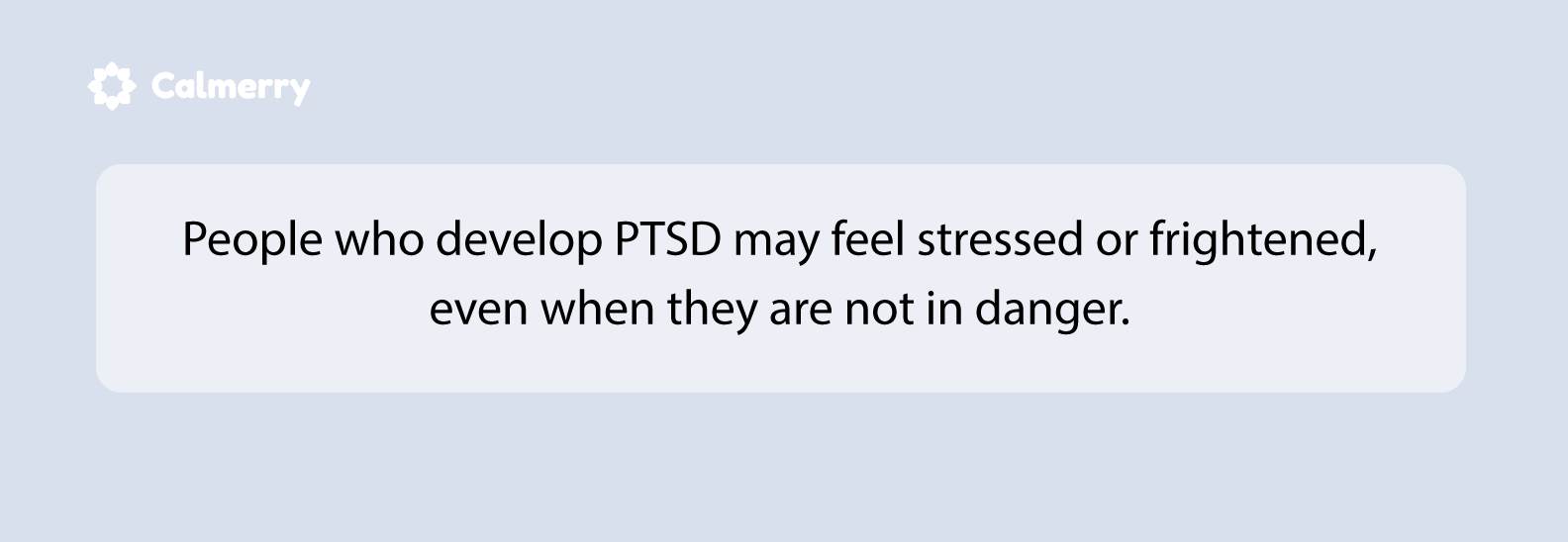
Obsessive-compulsive disorder (OCD)
A common, chronic, and long-lasting mental disorder in which a person has uncontrollable, reoccurring thoughts (obsessions) and/or behaviors (compulsions) that they feel the urge to repeat over and over again. People with OCD may have symptoms of obsessions, compulsions, or both. OCD affects people of all ages and walks of life and can be effectively treated with medications and psychological therapies.
Eating disorders
Serious and often fatal illnesses that are associated with severe disturbances in people’s eating behaviors and related thoughts and emotions. People with eating disorders are often preoccupied with food, body weight, and shape. Common eating disorders include anorexia nervosa, bulimia nervosa, and binge-eating disorder. Eating disorders can be effectively treated using psychological and medical treatments.
Substance use disorder
A mental disorder that affects a person’s brain and behavior, leading to an inability to control the use of substances, such as legal or illegal drugs, alcohol, or medications despite harmful consequences. Symptoms of substance use disorder can range from moderate to severe.
The most severe SUDs are sometimes called addictions. In addition to substances, people can also develop an addiction to behaviors, such as gambling. People with substance use and behavioral addictions may be aware of their problems but not be able to stop even if they want and try to.
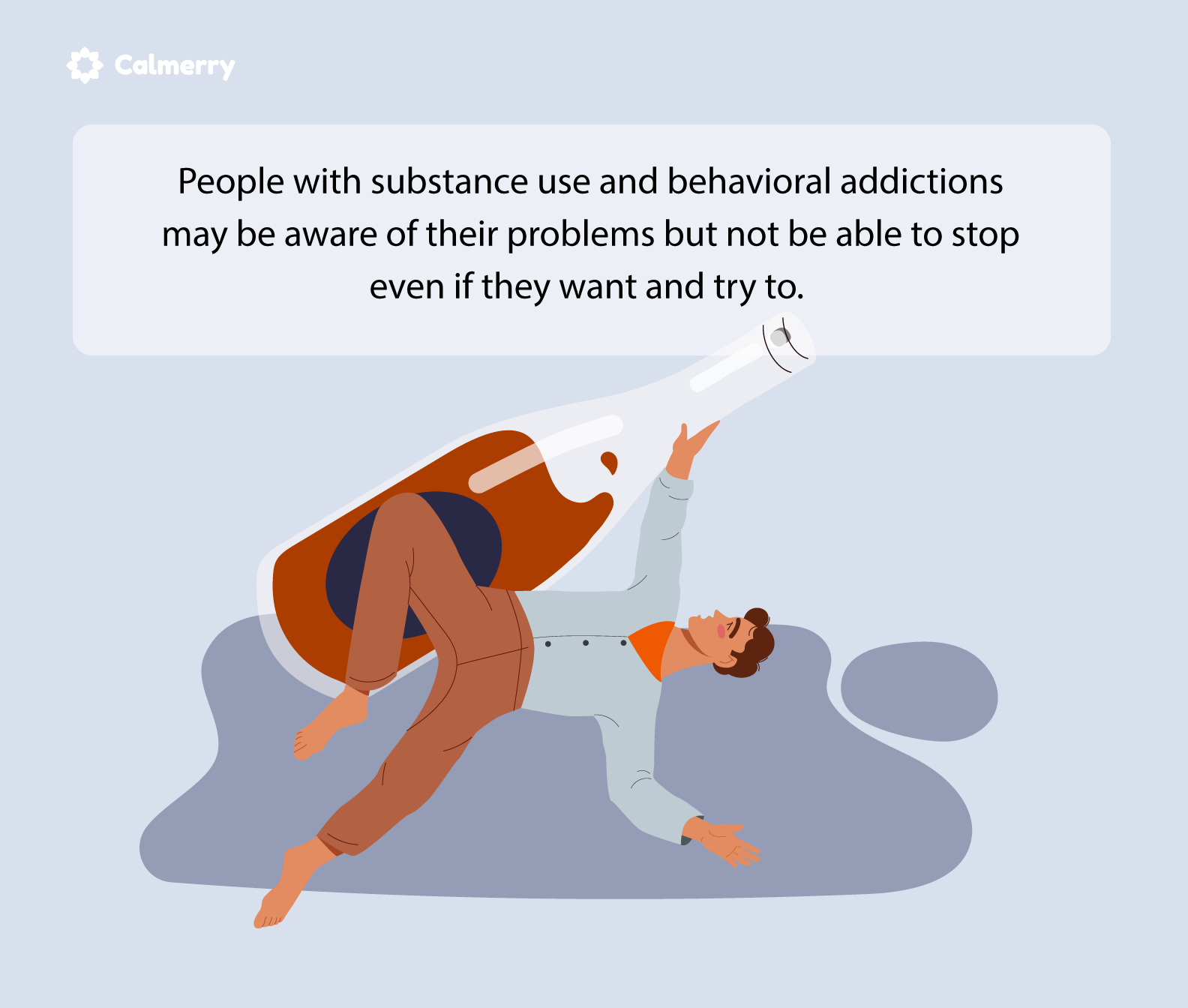
Personality disorders
Mental health conditions that involve long-lasting, all-encompassing, disruptive patterns of thinking, behavior, mood, and relating to others that deviate from the expectations of the culture. These patterns cause a person significant distress and/or impair their ability to function.
People with personality disorders often don’t realize that their thoughts and behaviors are problematic, as well as the negative effect they have on others. There are 10 specific types of personality disorders, each with different characteristics and symptoms.
Autism spectrum disorder
A complex developmental condition involving persistent challenges with social skills, restricted interests, repetitive behavior, speech, and nonverbal communication. Because autism is a spectrum disorder, each person with autism has a distinct set of strengths and challenges. Some autistic people need support to help them only with certain things, and others may need help from a parent or caregiver every day.
Attention-deficit/hyperactivity disorder (ADHD)
A neurodevelopmental disorder that is marked by an ongoing pattern of inattention and/or hyperactivity-impulsivity that interferes with functioning or development. Symptoms of ADHD tend to be noticed at an early age, and most cases are diagnosed when children are 3 to 7 years old.
Sometimes, ADHD is not recognized when someone was a child, and they are diagnosed later as an adult. Although ADHD can’t be cured, it can be successfully managed.
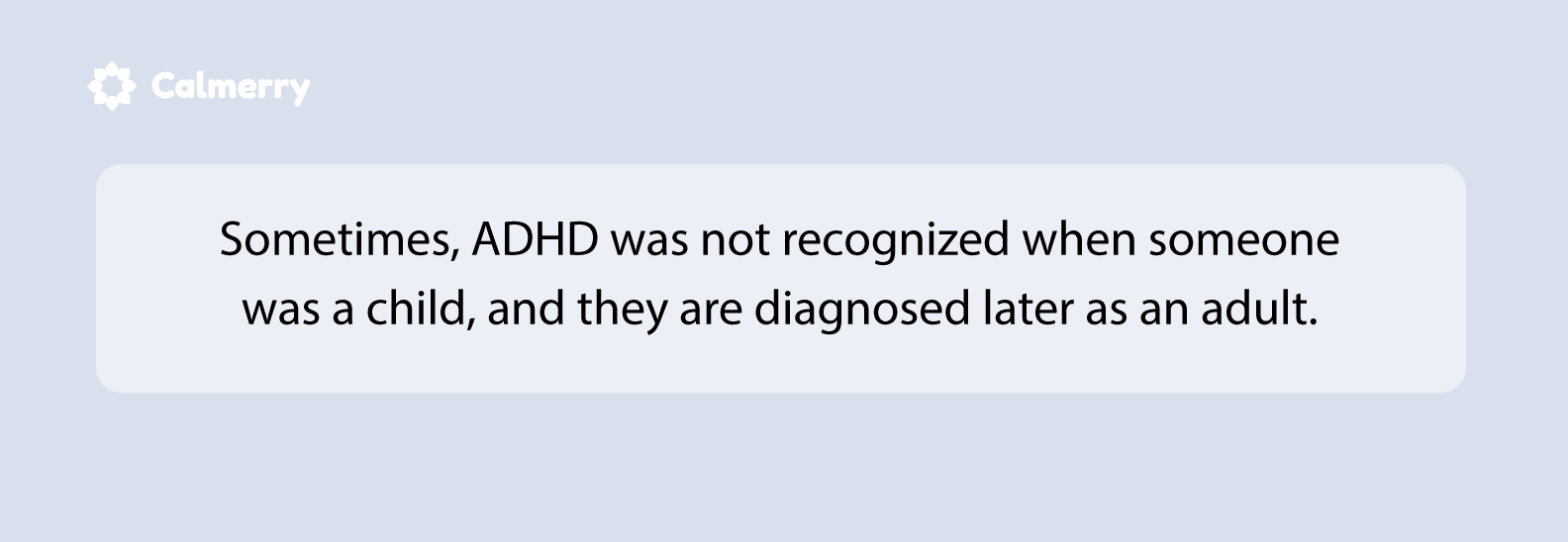
Schizophrenia
A serious mental disorder in which people interpret reality abnormally. Schizophrenia may result in some combination of hallucinations, delusions, and extremely disordered thinking (speech) and behavior that impairs daily functioning and can be disabling.
People with schizophrenia are usually diagnosed between the ages of 16 and 30, after the first episode of psychosis. They require life-long treatment with a combination of medicine and therapy tailored to each person.
Hallucinations
False perceptions involving your senses (sight, sound, smell, touch, and taste), such as hearing nonexistent voices, seeing nonexistent things, and experiencing burning or pain sensations with no physical cause. Hallucinations are sensory experiences that exist only in the mind.
Delusions
Fixed, false beliefs that conflict with reality and that indicate an abnormality in the affected person’s content of thought. Delusions are symptoms of either a medical, neurological, or mental disorder. They may be present in psychotic disorders, including schizophrenia, bipolar disorder, major depressive disorder with psychotic features, delirium, and dementia.
Psychosis
A condition that affects the way the brain processes information and makes it difficult for a person to recognize what is real and what isn’t. Symptoms of psychosis include delusions, hallucinations, incoherent or nonsense speech, and behavior that is inappropriate for the situation. Psychosis can be a symptom of serious mental health disorders.
Stress
Stress is a normal reaction your body has when changes occur, resulting in physical, emotional, and intellectual responses. Stress is your body’s response to anything that requires attention or action, and it helps adjust to new situations. We experience stress when we are in a situation that we don’t feel we can manage or control.
Stress can be positive, keeping us alert, motivated, and ready to avoid danger, but it becomes a problem when stressors continue without relief or periods of relaxation. In some cases, stress can affect our physical and mental health.
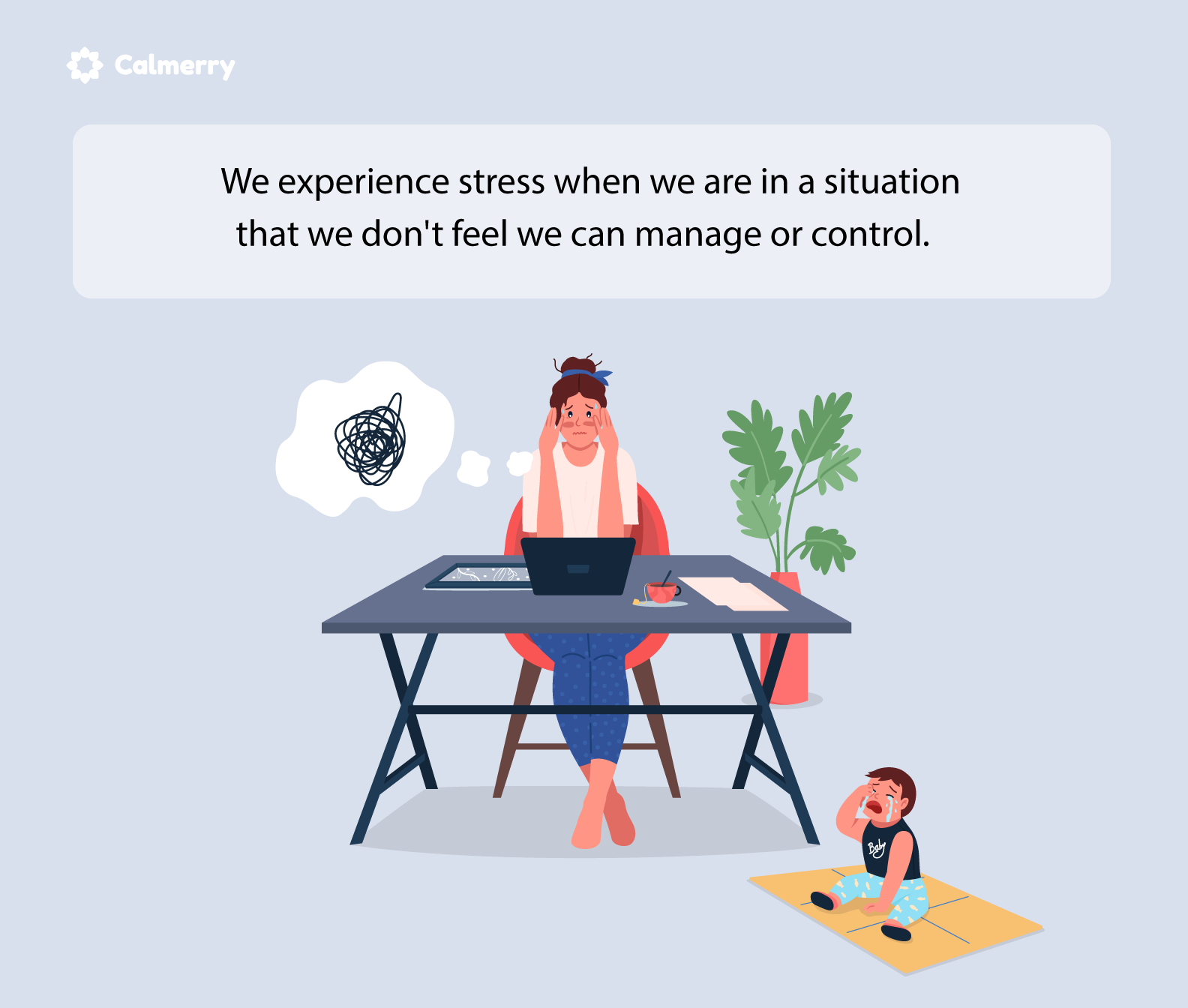
Grief
A normal emotional suffering experienced by a person from a loss of someone or something that’s important to them, such as the loss of a loved one (e.g. it is experienced when a family member dies). You might experience it for a number of different reasons, such as when a relationship ended or you lost your job.
Other life changes, like chronic illness or a move to a new home, can also lead to grief. Grief is different from a depressive disorder, and it is not a mental disorder.
Self-harm
Intentional behavior that is considered harmful to oneself. It is most commonly regarded as direct injury of one’s own skin tissues usually without a suicidal intention, such as by scratching, biting, burning, cutting, or eating or drinking things that are poisonous. Self-harm is not a mental illness, but it is often linked to mental distress.
Final word
Taking care of your mental well-being is essential to living a balanced life. That’s why speaking up about your mental health is as important as speaking about your physical health. It’s also crucial to ask for help when you feel some emotional distress and notice some warning signs because it’s the first step to feeling better.
Understanding these mental health terms and phrases makes it easier to talk about mental health with your friends, and family to put things in perspective and feel you’re not alone. And online therapy platforms like Calmerry can give you an opportunity to connect with a licensed therapist and benefit from greater flexibility in how you can get support and guidance to improve your mental health.
online therapy
live video session

